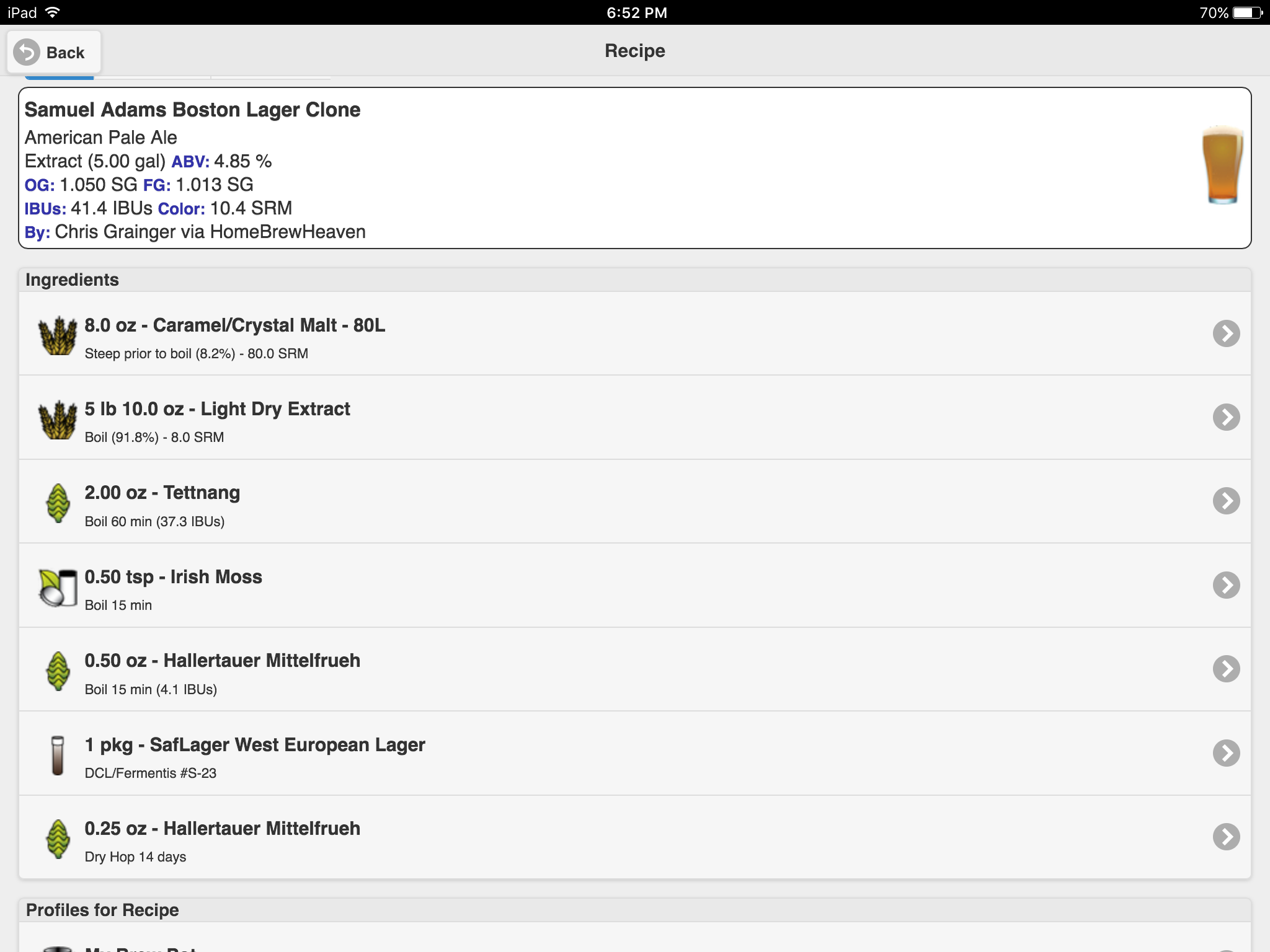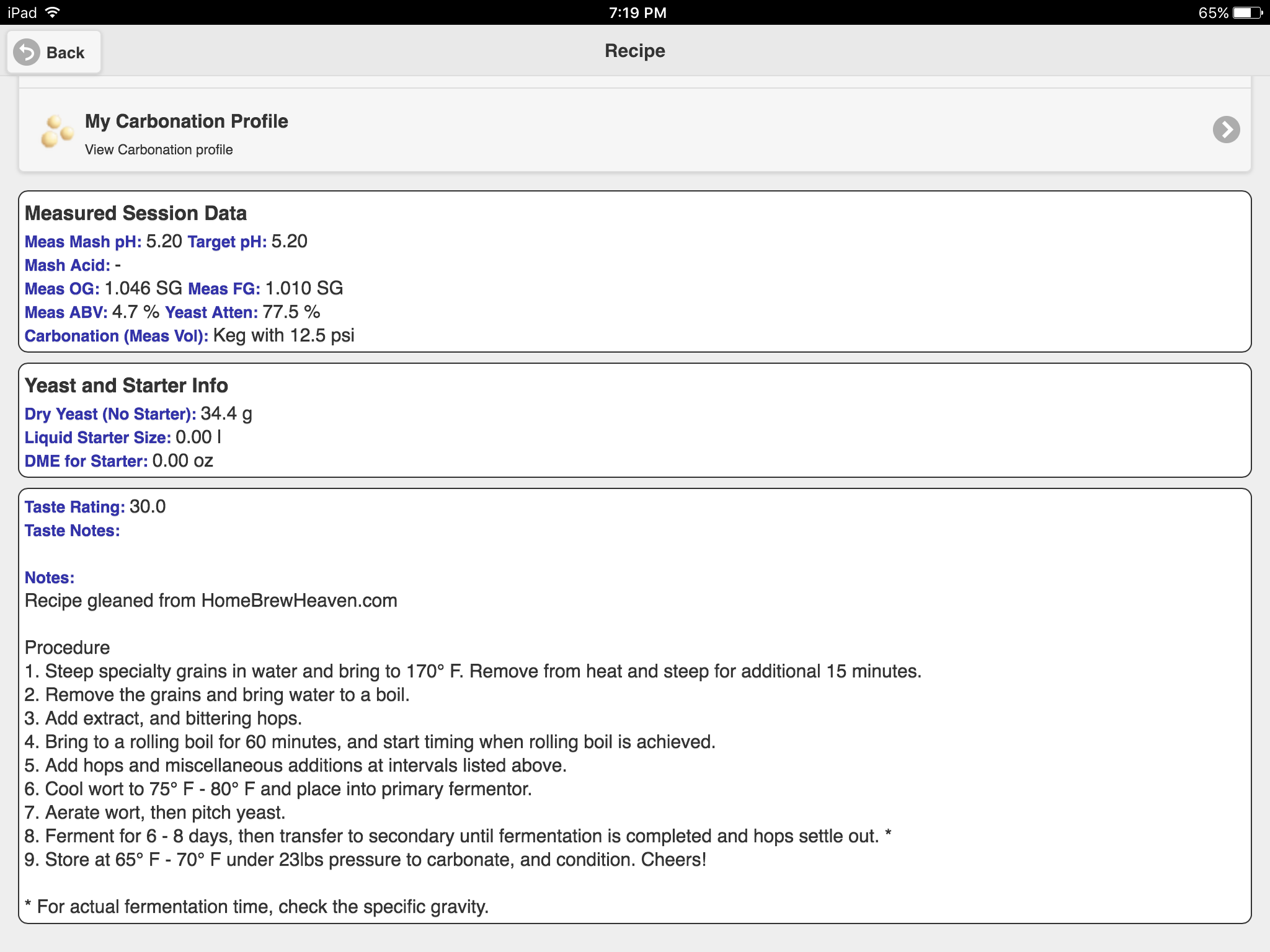TylerPrime
Member
- Joined
- Feb 27, 2018
- Messages
- 20
- Reaction score
- 2
Hey All!
I am getting into beer brewing for the first time. As with any new hobby, I am a bit lost and need some help.
I've found a beer recipe that I am interested in making. Here is the recipe that I found:
5 lb American 2-row
3.3 lb American Munich
0.75 lb Crystal 60
0.5 oz Hallertau
0.5 oz Tettnang
0.38 oz Hallertau
0.38 oz Tettnang
0.25 oz Hallertau (dry)
0.25 oz Tettnang (dry)
Wyeast 2206 Bavarian Lager
From this recipe, the Malt Grain is what is tripping me up. As someone who has never brewed beer, I don't have the first clew on how this is done. I was reading online that Malt Extract is far easier to work with, but I haven't the slightest clue on what type of extract would be equal to the Malt Grains listed above. Is the malt grain to malt extract a 1 to 1 conversion? Or is it something like .5 pounds of extract per 1 pound of grain? Is the process when using extract the same as a unprocessed grain?
Thanks!
I am getting into beer brewing for the first time. As with any new hobby, I am a bit lost and need some help.
I've found a beer recipe that I am interested in making. Here is the recipe that I found:
5 lb American 2-row
3.3 lb American Munich
0.75 lb Crystal 60
0.5 oz Hallertau
0.5 oz Tettnang
0.38 oz Hallertau
0.38 oz Tettnang
0.25 oz Hallertau (dry)
0.25 oz Tettnang (dry)
Wyeast 2206 Bavarian Lager
From this recipe, the Malt Grain is what is tripping me up. As someone who has never brewed beer, I don't have the first clew on how this is done. I was reading online that Malt Extract is far easier to work with, but I haven't the slightest clue on what type of extract would be equal to the Malt Grains listed above. Is the malt grain to malt extract a 1 to 1 conversion? Or is it something like .5 pounds of extract per 1 pound of grain? Is the process when using extract the same as a unprocessed grain?
Thanks!




